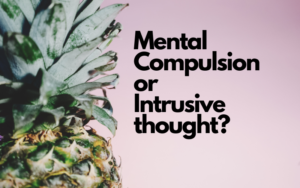Podcast Summary
Exploring Language Learning and Hiring Practices: Improve language skills with immersive programs like Rosetta Stone, and use LinkedIn to expand your hiring pool
Improving language skills, especially for frequent travelers, can greatly enhance personal and professional experiences. The speaker shares his desire to learn Spanish better due to his frequent trips to Mexico and California. He expresses dissatisfaction with traditional language learning methods, such as textbooks, and praises Rosetta Stone for its immersive approach. Rosetta Stone, a trusted language learning program with 30 years of experience and 25 languages offered, allows users to learn by speaking, listening, and thinking in the target language. Its speech recognition features provide personalized feedback, making it an effective and valuable investment for lifelong language learning. Additionally, LinkedIn is highlighted as an essential tool for small business owners seeking to hire professionals, as it provides access to a large pool of candidates who may not be actively looking for new opportunities. In the context of the podcast, the speaker discusses the Eilish Poe series, focusing on the importance of understanding the motivations behind horrific events, even when no clear explanation exists. The speaker emphasizes that seeking answers is a natural response to inexplicable tragedies, and that Eilish's search for understanding continues to drive her character development.
Intruder's chilling movie choices revealed: An intruder spent 26 hours in a home's basement, watched disturbing movies like 'Kill Bill' and 'Parasite', and his actions were influenced by them.
The speaker's encounter with a intruder in her home on November 5th was a harrowing experience marked by repeated visits from the police and the discovery that the intruder had been watching specific disturbing scenes from movies while hiding in her basement. The police shared this information with her father before telling her, which upset her. The intruder had spent 26 hours in the basement and had used items already there for comfort. The movies he watched included "Kill Bill," "Parasite," and a scene from "Midsummer" where elderly people jump off a cliff to their death. The speaker found it chilling that the intruder had watched these scenes multiple times, especially given what was later discovered about his actions. The incident was premeditated and seemed to be influenced by the movies he had watched.
A man's obsession with war and revenge scripts: An individual's fascination with scripts of war and revenge doesn't necessarily lead to harmful behavior, but it can influence how they perceive and react to situations, especially when things don't go as planned.
The individual in question had an unusual obsession with movies, scripts, and books, particularly those related to war and revenge. This obsession seemed to influence his behavior, leading him to romanticize or script out interactions. He became disturbed when things didn't go as planned and responded poorly to rejection. Despite his seemingly normal upbringing, it's unclear what caused him to develop these tendencies. It's important to remember that not everyone with a traumatic past becomes a psychopath, and it's not an excuse for harmful behavior. The individual continued to engage in normal activities before the incident, leading up to it. Ultimately, what triggered the snap remains unknown.
Family's lack of support after trauma: The absence of communication and understanding from a perpetrator's family can worsen the emotional pain and confusion for the victim. Acknowledging the full impact of the perpetrator's actions is crucial for healing.
The lack of communication and support from the perpetrator's family after a traumatic event can add to the emotional pain and confusion for the victim. The speaker expresses frustration over the absence of contact and insensitive comments from the family, especially during significant days for the victim. The speaker also highlights the importance of acknowledging the full impact of the perpetrator's actions, including the harm inflicted on the victim. The speaker's experience underscores the need for open dialogue, understanding, and empathy towards victims of interpersonal violence.
Discovering Relief Through Therapy, Podcasts, and Affordable Brands: Therapy offers a safe space to address emotional burdens, BetterHelp is a convenient online therapy platform, Sofia with an f podcast covers taboo topics, Quince offers affordable and high-quality clothing and home essentials, and Pretty Litter provides effective cat litter and health monitoring.
It's important to address and work through emotional burdens, and therapy can provide a safe and convenient space to do so. BetterHelp is an online therapy platform that offers flexibility and affordability. Sofia with an f is a raw and funny podcast that covers taboo topics related to sex, life, and mental health. Quince is a brand that offers high-quality, affordable clothing and home essentials. Pretty Litter is a cat litter that effectively traps odors and provides early signs of potential health issues. During the discussion, it was emphasized that bottled-up emotions can lead to negative outcomes, and therapy can help individuals work through their feelings and find relief. BetterHelp, an online therapy platform, was recommended as a convenient and flexible option for those considering starting therapy. Sofia with an f, a podcast that covers sex, life, mental health, and other taboo topics, was praised for its down-to-earth interviews and raw humor. Quince, a brand that offers timeless and affordable clothing and home essentials, was highlighted for its high-quality materials and ethical manufacturing practices. Lastly, Pretty Litter, a cat litter that effectively traps odors and provides early signs of potential health issues, was recommended as a must-have for cat owners. Overall, the conversation touched on various topics, including therapy, podcasts, fashion, and pet care.
Simple solutions to common problems: Pretty Litter prevents smelly cat litter boxes and Rosetta Stone makes language learning enjoyable and efficient. Open communication is essential, and everyone deserves empathy and understanding.
There are solutions to common problems, such as a smelly cat litter box or language learning, that can make life better without requiring excessive effort or expense. For instance, Pretty Litter is an effective alternative to traditional cat litter that helps prevent unpleasant odors. And Rosetta Stone offers an intuitive language learning program that immerses users in a new language naturally, making the learning process enjoyable and efficient. Another important takeaway is the importance of speaking up and addressing uncomfortable situations. In the discussion, a past relationship was revealed where a friend's ex-boyfriend had physically harmed his girlfriend. The friend had not shared this information with his current girlfriend, and she felt hurt and confused when she found out. This situation highlights the importance of open communication and the potential consequences of withholding information. Lastly, it's essential to remember that everyone has a past, and people should not be defined by their mistakes or past actions. It's crucial to approach situations with empathy and understanding, and to give people the benefit of the doubt. So, in summary, there are practical solutions to common problems, the importance of open communication, and the value of empathy and understanding.
John's violent past hidden from friends: John manipulated relationships and hid his violent behavior, leading to his untimely death. Listen to warnings about potential dangerous individuals.
John's past behavior towards women, including violent incidents, was hidden from those around him. Despite warnings from a friend, John's friends in Spain were unaware of his violent past or even his death. They found out through the podcast. The mysterious girl John supposedly dated in Spain did not recall their relationship being serious, and they broke up before John left Spain. The reason for his sudden departure from Spain, which he claimed was due to the pandemic, was actually because of a broken relationship. This pattern of hiding his violent behavior and manipulating relationships continued throughout John's life, even leading to his untimely death. It's a stark reminder that appearances can be deceiving and that it's important to listen to warnings about potential dangerous individuals.
Ex-coworker's deceit led to dangerous situation: Deceit and manipulation can lead to uncomfortable situations and even dangerous outcomes. Always communicate honestly and openly in relationships.
Deceit and manipulation can lead to dangerous situations. The woman in this story shared an experience where her ex-coworker, who she had only briefly dated, had spread lies about their relationship to her friends in another country, even going so far as to claim they had lived together and were deeply in love. This false narrative led her to feel uncomfortable and uneasy when he suddenly returned to the country, eventually leading to a dangerous situation where he attempted to harm her. It's important to remember that deceit and manipulation can have serious consequences, and it's crucial to communicate honestly and openly in relationships.
Memories and attachments change over time: Our past experiences and attachments can lose significance as time passes, even seemingly important events can become mere blips in our lives.
Our past experiences, no matter how significant they seemed at the time, may fade into insignificance with the passage of time. The speaker thought they were uncovering a mystery about a past relationship between a woman from Spain and a man named John. However, when they spoke to the woman, she revealed that she barely remembered John and hadn't thought about him in years. Even when she discovered that John had died, she was not overly affected. This experience highlights how our memories and attachments to people can change over time, and how seemingly important events can become mere blips in our lives.
The subject's actions were premeditated and planned out, not impulsive or due to a mental health crisis: The subject's behavior was calculated and deliberate, contradicting initial assumptions of impulsivity or mental health issues. He had rented a car and made casual calls during the incident, and had even falsely claimed to be dating Billie Eilish before she knew him.
The actions of the subject in this episode of Otherworld were not impulsive or the result of a mental health crisis, but rather calmly premeditated and planned out. The evidence includes him renting a car and making casual calls during the time of the incident. An intriguing detail is that he had been telling people he was dating Billie Eilish before she even knew him, suggesting the plan may have been in motion long before he came into her life. The second half of the finale covers the paranormal experiences Eilish has had since then, focusing on her journey towards life's revival. This episode was produced, hosted, and edited by Jack Wagner, with music by Coberman, Juice Jackal, and North Americans. Support us by subscribing, reviewing, and sharing. Bonus episodes are available on Patreon. Follow us on social media and send us your paranormal stories. Otherworld is brought to you by the team at Odysee, including JD Crowley, Jenna Weiss Berman, Leah Reese Dennis, Rob Morandi, Eric Donnelly, Matt Casey, Casey Klauser, Maura Curran, and Hilary Shuff. Listen for free on Odysee or your favorite podcast platform.





 Hello there
Hello there 
